This article is based on a thorough review of relevant authoritative literature and materials, forming professional and reliable content. All data in the article is verifiable and traceable. Special statement: The data and materials have been authorized. The content of this article does not involve any biased views and objectively describes the facts with a neutral attitude.
At the end of the article, there are the latest trending articles; feel free to check them out if you’re interested.
Continuously updated: Modern C++ Efficient Programming Practical Manual: From Project Pain Points to the Essence of Modern C++
Hello everyone, today I continue to share valuable insights. Those who are familiar with me know that my real valuable content is usually in the middle and at the end. Please read patiently! Thank you.You can get the C++ interview emergency kit (which also includes classic C++ projects and books) at the end of the article.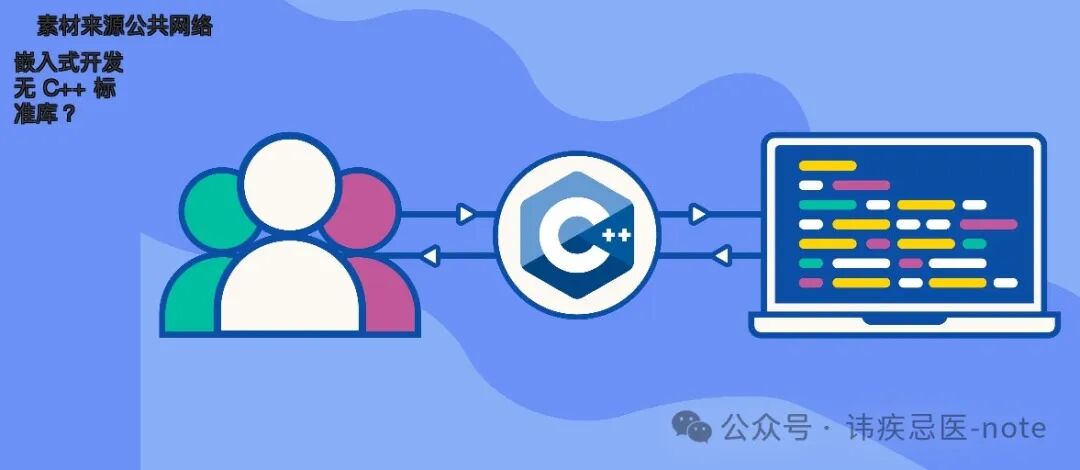
C++11 introduced<span>std::future</span> which provides developers with powerful asynchronous tools. But what if we find ourselves in an environment without C++ standard library support, such as embedded systems or minimal runtime? The answer is to build similar functionality from scratch using C language. This is not only a technical challenge but also a supreme demonstration of C language’s low-level control capabilities. This article will take you deep into how to simulate C++’s<span>std::future</span> using C language to achieve cross-thread task scheduling. Through detailed explanations of principles and complete code examples, you will quickly master this technology and understand the design wisdom behind it. Whether you want to optimize embedded projects or explore the limits of C language, this article will open new horizons for you.
1. Requirement Analysis and Core Objectives
The essence of asynchronous programming is to separate the submission and execution of tasks while ensuring safe transmission of results and proper management of resources. Our design objectives are as follows:
1.1 Main Functional Requirements
- Asynchronous Task Submission: The calling thread returns immediately after submitting the task, without blocking.
- Result Retrieval and Synchronization: The calling thread can retrieve the result at any time and block if necessary.
- Error Transmission: Errors during task execution must be reliably transmitted to the caller.
- Resource Management: The lifecycle of resources such as threads and memory must be precisely controlled to avoid leaks.
1.2 Technical Constraints and Challenges
C language does not have the high-level abstractions of C++, and we need to face the following limitations:
- No Built-in Thread Support: Relies on the POSIX thread library (
<span>pthread</span>) or platform APIs. - No Object-Oriented Mechanism: Uses structures and function pointers to simulate classes and polymorphism.
- No Exception Handling: Uses error codes instead of C++’s
<span>try-catch</span>. - Manual Memory Management: No RAII, resources must be explicitly released.
These constraints, while increasing implementation difficulty, also bring us closer to the system’s low level, providing unparalleled control.
2. System Architecture Design
To implement the functionality of<span>std::future</span>, we need four core components: task representation, task handle, task queue, and thread pool. Here is the detailed design.
2.1 Core Data Structures
2.1.1 Task Structure (Task Representation)
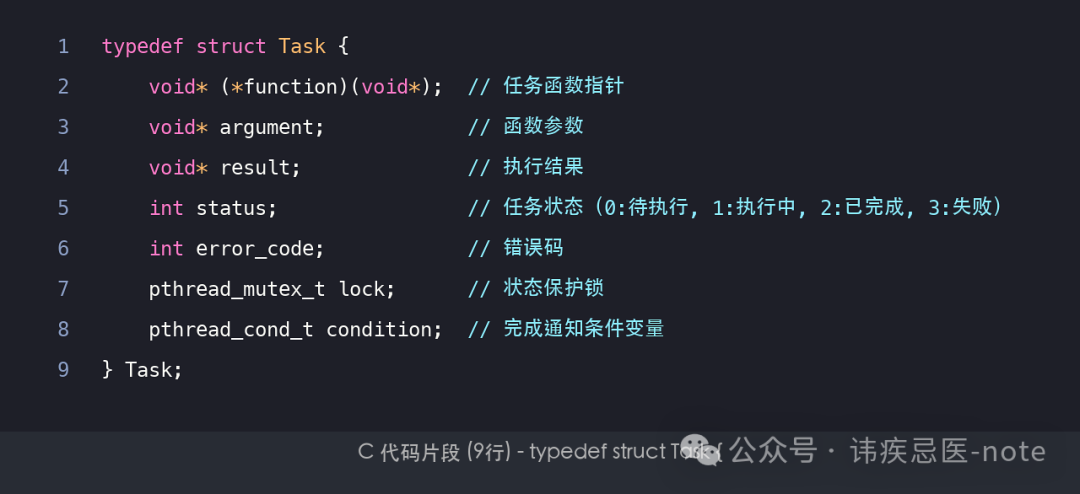
- function and argument define the task content, simulating C++’s
<span>std::packaged_task</span>. - result stores the execution result, similar to the return value of
<span>std::future</span>. - status and error_code track task status and errors, replacing C++ exceptions.
- lock and condition are POSIX synchronization primitives that ensure thread safety and state notification.
2.1.2 Future Structure (Task Handle)
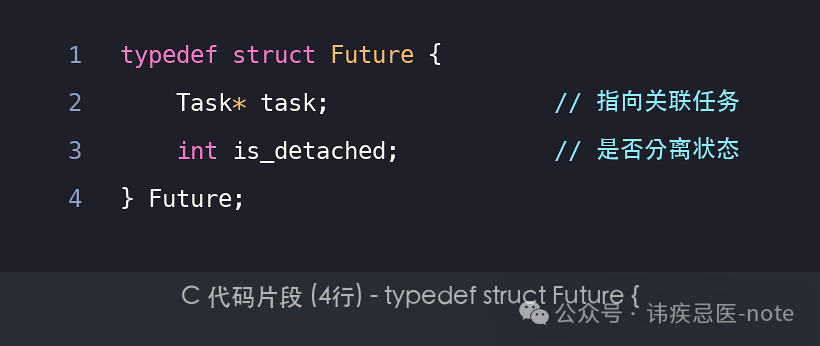
- task associates with a specific task, similar to the internal promise of
<span>std::future</span>. - is_detached controls the resource release strategy, mimicking the move semantics of
<span>std::future</span>.
2.1.3 TaskQueue Structure (Task Queue)
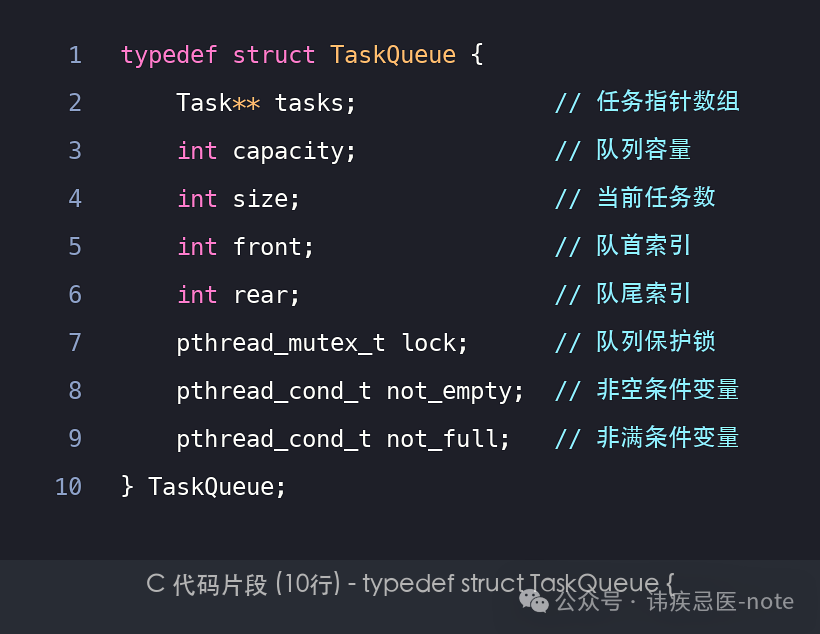
- Implements a circular queue, supporting efficient task submission and retrieval.
- not_empty and not_full condition variables control thread waiting, avoiding busy loops.
2.1.4 ThreadPool Structure (Thread Pool)
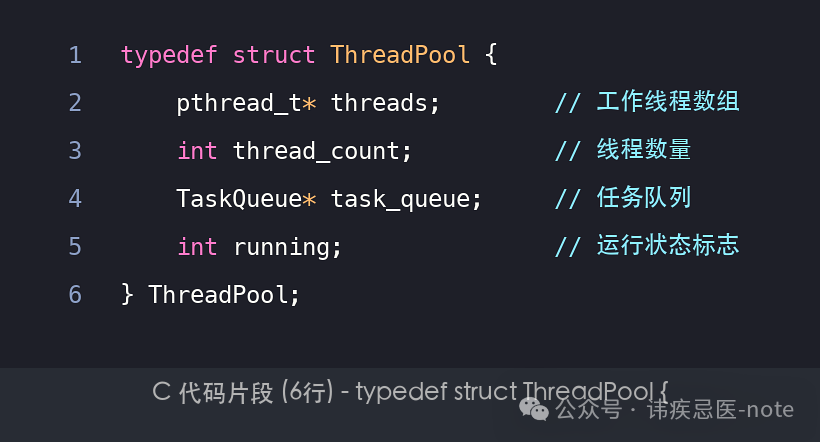
- threads manage worker threads, task_queue distributes tasks.
- running controls the lifecycle of the thread pool.
2.2 Interface Design
2.2.1 Task Submission and Management
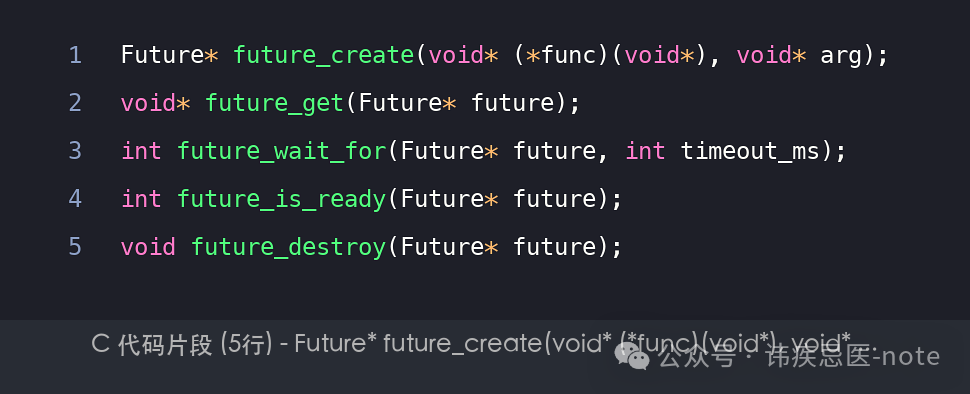
- Aligns with the functionalities of
<span>std::async</span>and<span>std::future</span>, providing an intuitive API.
2.2.2 Thread Pool Control

- The thread pool manages task execution, optimizing resource utilization.
3. Key Processes and Implementation Details
3.1 Task Lifecycle Management
3.1.1 Task Creation and Submission
- future_create:
- Allocate
<span>Task</span>and<span>Future</span>objects. - Initialize mutex and condition variables.
- Submit the task to the thread pool queue.
- Return the
<span>Future</span>handle.
<span>pthread_mutex_init</span> and <span>pthread_cond_init</span>, and return values must be checked to prevent initialization failures.3.1.2 Task Execution Process
- Worker thread:
- Extract task from the queue.
- Lock and update status to “executing”.
- Execute the task function, storing the result and error code.
- Lock and update status to “completed” or “failed”.
- Send a signal to notify waiting threads.
3.1.3 Result Retrieval
- future_get:
- Lock and check task status.
- If not completed, call
<span>pthread_cond_wait</span>to wait. - Return result or error.
3.1.4 Resource Release
- future_destroy:
- If not in detached state, release
<span>Task</span>resources. - Destroy synchronization primitives.
- Free
<span>Future</span>memory.
3.2 Thread Synchronization Mechanism Implementation
3.2.1 Mutex Protection for Shared Data
- Task status and queue operations must be locked.
- Use
<span>pthread_mutex_lock</span>and<span>unlock</span>to ensure data consistency.
3.2.2 Condition Variable Notification
- Task completion:
<span>pthread_cond_signal(&task->condition)</span>. - Queue not empty:
<span>pthread_cond_broadcast(&queue->not_empty)</span>. - Efficiently avoids busy waiting, reducing CPU usage.
3.2.3 State Consistency
- running flag is protected by atomic operations (such as
<span>__sync_bool_compare_and_swap</span>) to prevent contention.
3.3 Worker Thread Main Loop
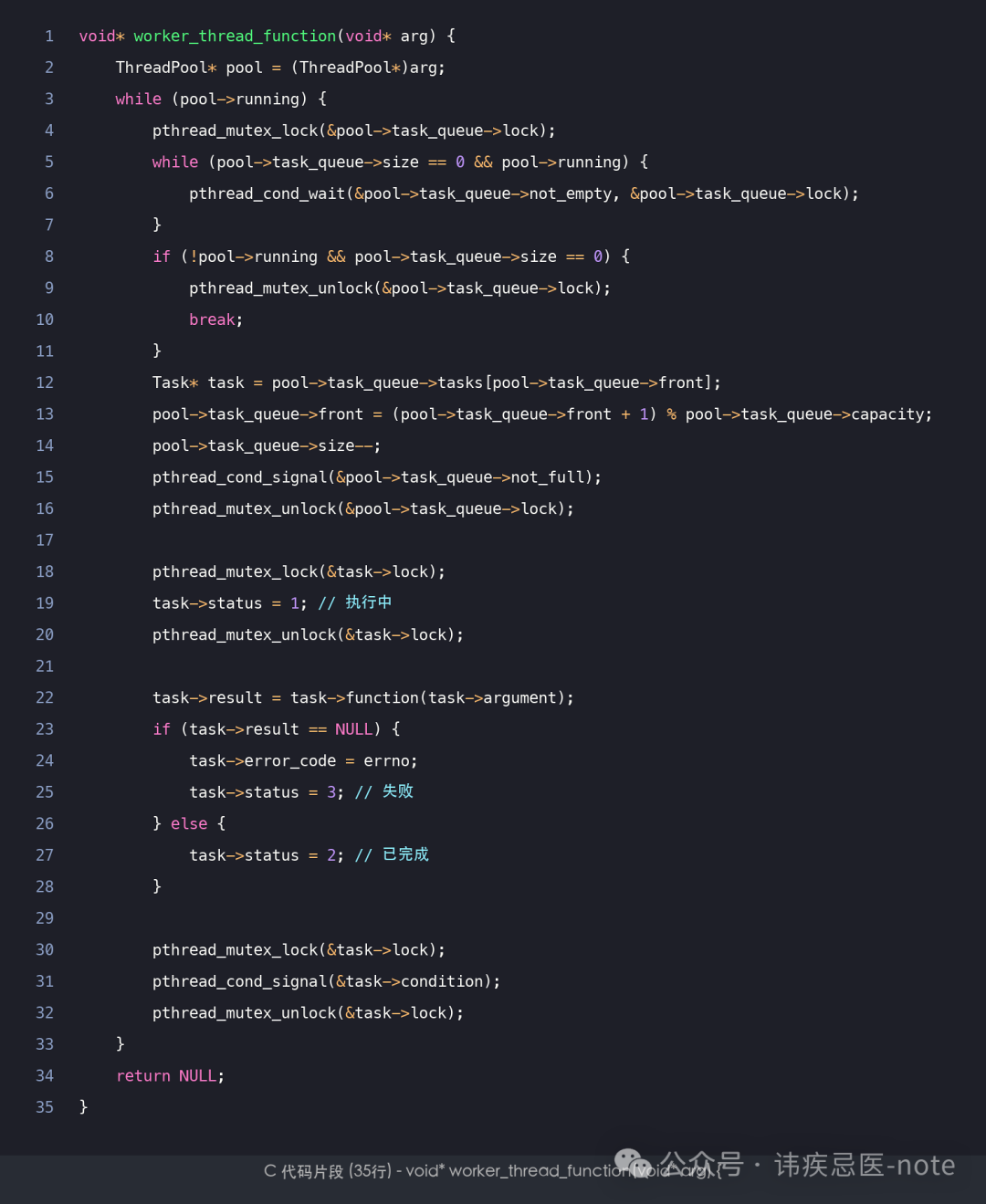
- Details: Queue operations use circular indexing, and condition variable signals ensure smooth task execution.
3.4 Error Handling Strategy
- Task Errors: Passed through
<span>errno</span>, stored in<span>error_code</span>. - Resource Allocation Failures: Rollback and return NULL.
- Cancellation Support: Expandable to add cancellation flags.
4. Complete Code Example
The following is a complete implementation, including basic functionality for learning and debugging.

- Compile:
<span>gcc -o future future.c -pthread</span>. - Run: Tasks execute asynchronously, and results are returned correctly.
5. Optimization and Expansion
5.1 Performance Optimization
- Lock-Free Queue: Use CAS operations to replace locks, improving concurrency performance.
- Memory Pool: Pre-allocate
<span>Task</span>objects to reduce dynamic allocation overhead. - Thread Affinity: Bind to CPU cores to reduce context switching.
5.2 Function Expansion
- Task Chains: Implement
<span>future_then</span>to support dependent tasks. - Concurrency Control:
<span>future_when_all</span>waits for multiple tasks to complete.
6. Conclusion
Implementing<span>std::future</span> in C language not only demonstrates the powerful control of the language but also deepens our understanding of the essence of asynchronous programming. Task abstraction, synchronization mechanisms, thread pool management, error transmission, and resource control together constitute the essence of this design. Compared to C++’s<span>std::future</span>, the C implementation is lighter, suitable for resource-constrained scenarios, while maintaining efficiency and scalability.
References
- POSIX Threads Programming, Blaise Barney, Lawrence Livermore National Laboratory
- The C Programming Language, Brian W. Kernighan and Dennis M. Ritchie
- Advanced Programming in the UNIX Environment, W. Richard Stevens
- C11 Standard – ISO/IEC 9899:2011
- Pthreads Programming, Bradford Nichols, Dick Buttlar, and Jacqueline Proulx Farrell
Latest popular article recommendations:
Struggling with C++ file operations in project development? This article is enough!
Tired of the complexity of multi-language processing in C++? This article helps you easily master advanced techniques!
Old binary operations inefficient? C++23 new features teach you to redefine efficient I/O!
Still troubled by time handling in old projects? C++20/23 new features come to the rescue!